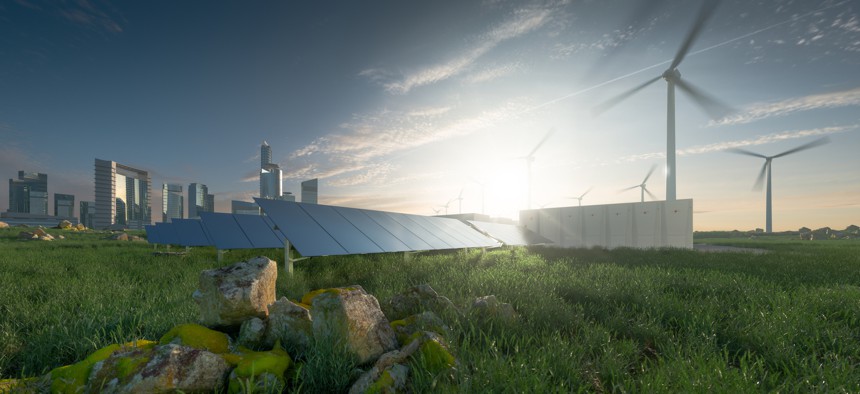DOE unveils $39 million for electric grid cybersecurity projects

Petmal/Getty Images
Nine national labs will split $39 million in new federal investment, with projects leveraging cloud-based software and AI systems in cybersecurity for U.S. utility companies.
On Tuesday, the Department of Energy announced the disbursement of $39 million in new funding for nine National Laboratory projects that are focused on fortifying the cybersecurity protecting the nation’s energy grid.
Projects based out of Argonne, Brookhaven, Lawrence Berkeley, Oak Ridge, Pacific Northwest and Sandia National Laboratories will share the total funding amount for research that supports innovation in distributed energy resources’ digital security.
Distributed energy resources — or DER — systems encompass clean and renewable technologies like solar and wind power stations, as well as electric vehicle chargers. As the digital infrastructure in this industry becomes more interconnected in the larger internet of things, maintaining a strong cybersecurity posture has become paramount to strong national security measures.
“Distributed energy resources are critical to reaching President Biden’s ambitious clean energy and climate goals, and ensuring the cybersecurity of those resources is important to building a resilient energy future for all Americans,” said Puesh Kumar, the director of Energy’s Office of Cybersecurity, Energy Security and Emergency Response in the press release. “From detection and diagnostic tools to leveraging artificial intelligence and machine learning, CESER is proud to support these nine exceptional projects led by the DOE National Labs which will enhance the security of DERs in meaningful, pragmatic ways.”
While each of the projects are underpinned by the common cybersecurity theme, they run the gamut in focus areas, such as developing software to be deployed in cloud service environments, facilitating data sharing with the focus on customer security and using artificial intelligence technologies to mitigate cyber attacks on power grids.
Some of the national labs are also working with private sector companies — like Siemens — academic institutions — like Cornell University — and local utility companies to research and deploy their projects.
The funding was appropriated in the Bipartisan Infrastructure Law that passed Congress in November 2021.






